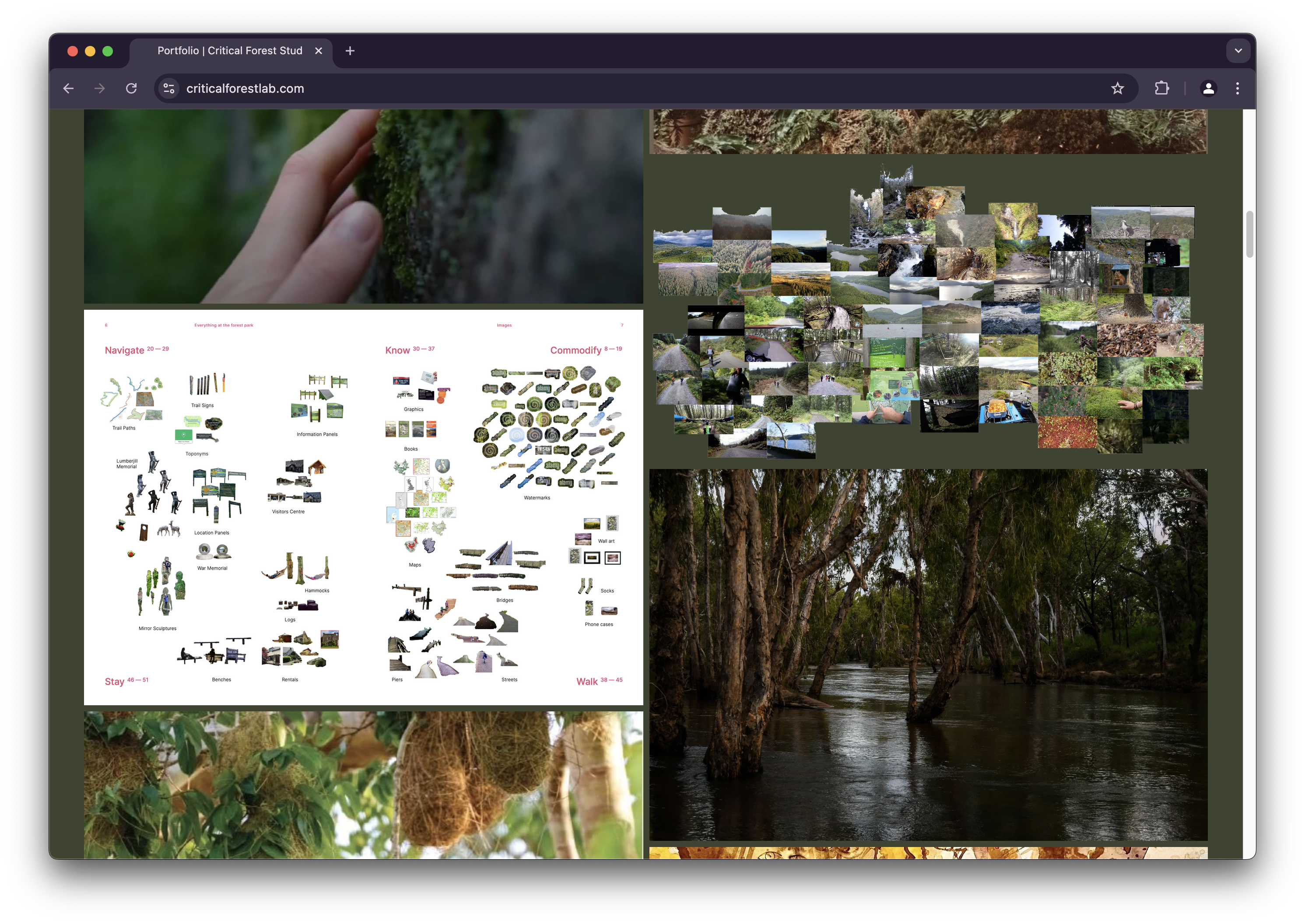critical forest studies collaboratory
October 28, 2024
We were invited to be part of this new critical forest studies collaboratory, a gathering of projects from around the world led by RMIT University in Melbourne, Australia.
The collaboratory includes pages for our work on forestscapes (with Maud Borie, Liliana Bounegru, Angela YT Chan and Andrés Saenz de Sicilia) and networked nature-cultures (with Liliana Bounegru, Gabriele Colombo and Rina Tsubaki), excerpts for which are copied below.
[- - - - - - - ✄ - - - snip - - - - - - - - - -]
networked nature-cultures
How are online spaces and digital objects involved in the re-articulation of nature-cultures? How can we trace the politics and dynamics of environmental issues online?
Through a series of collaborations with researchers, artists, designers and environmental organisations we have sought to develop approaches for exploring and re-presenting networked nature-cultures. In particular we have looked at how digital materials can be repurposed for collective inquiries into the online politics of environmental issues.
In one project we sought to examine how the 2019 Amazon forest fires were addressed and accounted for through a series of analyses using online data from digital platforms including Twitter, Facebook, Google, Instagram, and Youtube.
In another project we explore how arts and humanities based methods can help to situate forest restoration efforts across Europe. As part of this we have undertaken collaborative online mapping activities to surface forest-related actors, issues and practices.
[- - - - - - - ✄ - - - snip - - - - - - - - - -]
forestscapes
How can soundscapes be used as a way to attend to forest life and the many different ways of narrating and relating to forests, forest issues and forest futures?
The forestscapes project aims to explore and document generative arts-based methods for recomposing collections of sound materials to support “collective inquiry” into forests as living cultural landscapes.
Through an ongoing series of participatory workshops, exhibitions and listening labs the project explores how listening can serve as a way of engaging with and reconsidering forest life.
Through these activities algorithmic composition serves as an entrypoint for exploring folders and archives of forest sounds – from field recordings to online media materials.
Sound and soundscapes become a medium for surfacing unexpected actors and relations, unsettling who and what is noticed, and perhaps opening up other ways of knowing and experiencing forests.
